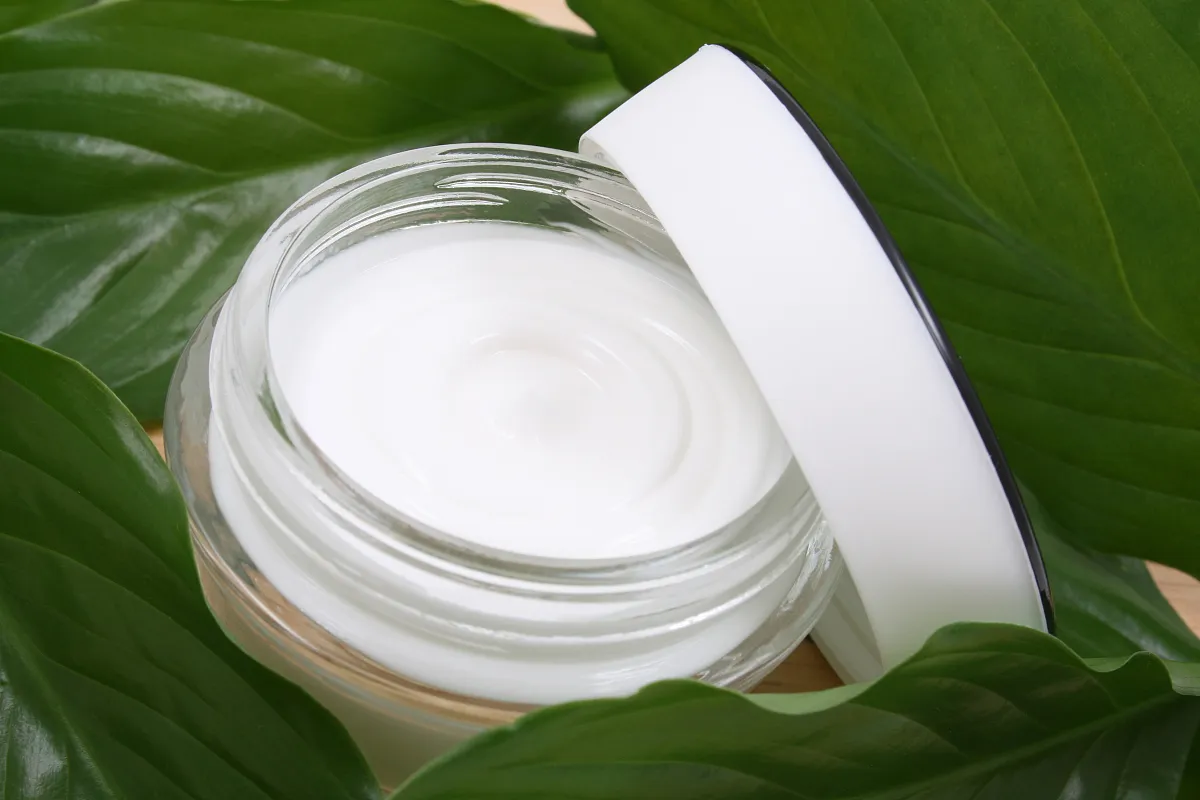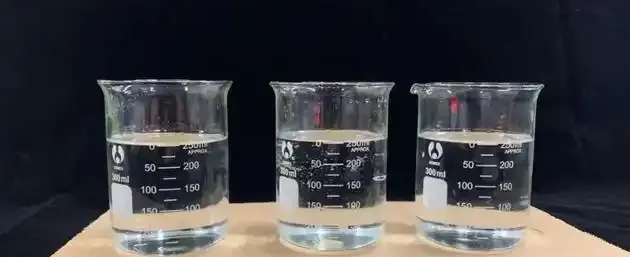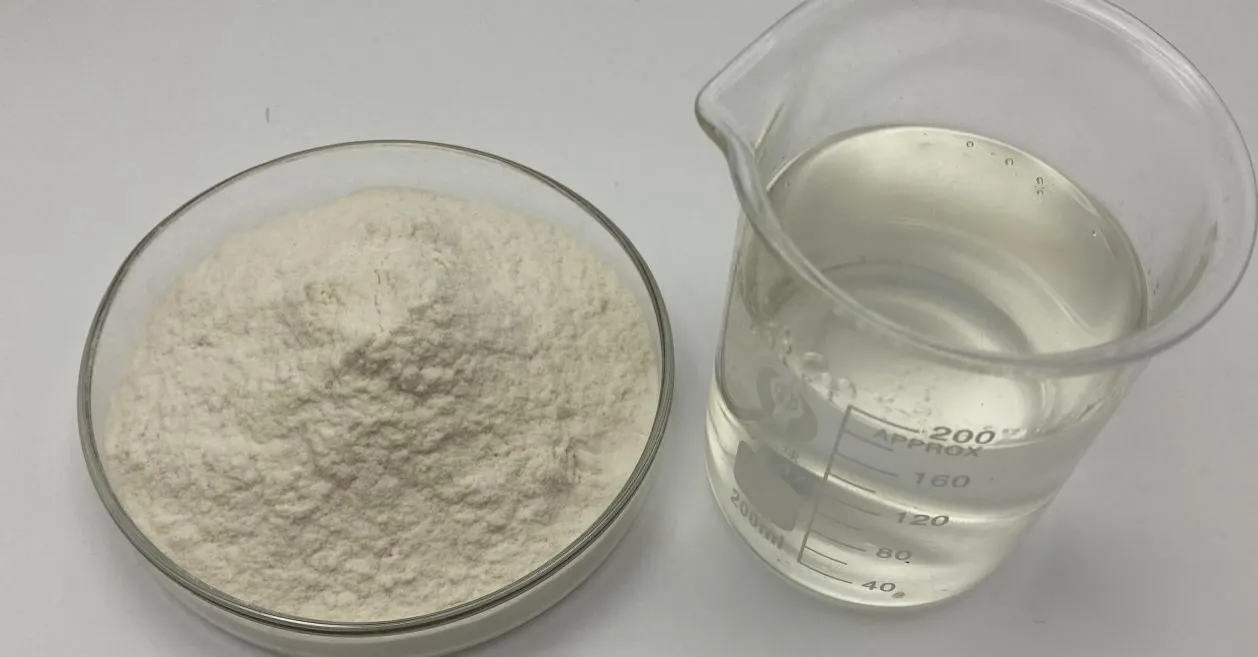
A Gentle Yet Powerful Thickener for Skincare and Industry
Hydroxyethyl cellulose, often abbreviated as HEC, is a non-ionic, water-soluble polymer derived from cellulose.

What Is Hydroxyethyl Cellulose?
This plant-based compound is widely used across various industries due to its excellent film-forming, stabilizing, and thickening properties. You may encounter hydroxyethylcellulose uses in products ranging from lotions and creams to detergents, paints, and construction materials.
The hydroxyethyl cellulose formula includes cellulose modified with hydroxyethyl groups, enhancing water solubility and viscosity control. A notable derivative, hydrophobically modified hydroxyethyl cellulose, contains hydrophobic side chains that improve its emulsifying and associative thickening properties—making it ideal for complex cosmetic formulations.
In the world of skincare and cosmetics, hydroxyethylcellulose skin applications are common. It’s used as a stabilizer and texture enhancer in facial cleansers, moisturizers, serums, and gels. Its non-irritating nature makes it suitable for sensitive skin and baby care products.

Safety and Skin Compatibility
One of the reasons hydroxyethyl cellulose is so popular in topical products is its high safety profile. However, as with any ingredient, some people may experience sensitivity. Though uncommon, hydroxyethyl cellulose allergy can manifest as mild skin irritation or redness. Patch testing is advisable, especially for individuals with highly reactive skin.
Like many polymers used in cosmetics, HEC is considered safe by global regulatory authorities when used within recommended concentrations. The hydroxyethyl cellulose side effects are minimal, typically limited to rare cases of contact dermatitis in sensitive individuals.
If you’re unsure about the identity of this ingredient, it’s helpful to note hydroxyethyl cellulose other names: these may include Cellosize, HEC, or simply hydroxyethylcellulose on cosmetic ingredient labels.
Functionally, HEC acts as a hydroxyethyl cellulose thickener, increasing viscosity and improving product stability without affecting pH. In water-based formulations, it contributes to a smooth, luxurious feel and helps prevent ingredient separation.
With the clean beauty movement on the rise, demand for cellulose-based ingredients is growing. Consumers and formulators alike are searching for places to buy hydroxyethyl cellulose in bulk or small quantities, depending on their needs.
Many online chemical suppliers now offer hydroxyethylcellulose for sale, making it accessible for DIY beauty enthusiasts, skincare startups, and industrial producers.

Broad Applications from Skincare to Industry
Beyond skincare, hydroxyethylcellulose uses extend into household products, construction, and pharmaceuticals. In cleaning solutions, it helps control rheology and prevents dripping. In paints and coatings, it enhances spreadability and suspension stability. In drug delivery, it’s used as a binder and film-forming agent in topical gels and eye drops.
For formulators, choosing between standard and hydrophobically modified hydroxyethyl cellulose is crucial. The modified version works better in emulsions, offering enhanced performance in products like sunscreens, foundations, and cream cleansers.
Whether you're developing a moisturizing gel or a wall putty formula, HEC remains a reliable and versatile component. Its non-toxic, biodegradable nature makes it a smart choice for sustainable and high-performance product lines.
FAQ Title: Hydroxyethyl Cellulose: Frequently Asked Questions
What is hydroxyethyl cellulose used for?
Hydroxyethylcellulose usesinclude thickening, stabilizing, and binding in a wide range of products such as skincare, pharmaceuticals, paints, and detergents. It’s especially valued in cosmetics for its ability to improve texture and consistency.
Can hydroxyethyl cellulose cause side effects?
Hydroxyethyl cellulose side effectsare rare. Some individuals may experience mild irritation or an allergic reaction. Always patch test new products containing HEC if you have sensitive skin.
What does hydrophobically modified hydroxyethyl cellulose do?
Hydrophobically modified hydroxyethyl celluloseimproves emulsification and provides better thickening in oil-in-water systems. It is ideal for advanced cosmetic and personal care formulations.
Is hydroxyethyl cellulose safe for skin use?
Yes. Hydroxyethylcellulose skinapplications are generally very safe. It’s non-comedogenic, gentle, and suitable for sensitive skin, which is why it’s often used in baby care and dermatological products.
Where can I buy hydroxyethyl cellulose?
You can buy hydroxyethyl celluloseonline from specialty chemical retailers, skincare ingredient suppliers, and industrial distributors. Look for hydroxyethylcellulose for sale in various grades depending on your application—cosmetic, pharmaceutical, or industrial.
In conclusion, hydroxyethyl cellulose is a safe, effective, and versatile thickener that serves essential roles in both consumer and industrial products. Whether you are developing high-performance skincare or searching for eco-friendly raw materials, HEC—standard or hydrophobically modified—is a powerful tool in modern formulation.
-
Wholesale Powder Water Reducing Admixture CP1000: High-Performance Concrete Solutions소식Aug.04,2025
-
Water Reducing Admixtures in Concrete: Types, Mechanisms, and Applications소식Aug.04,2025
-
Understanding Water Reducing Admixtures in Concrete: Types, Benefits, and Market Insights소식Aug.04,2025
-
Understanding Redispersible Polymer Powder :Applications and Market Insights소식Aug.04,2025
-
Redispersible Polymer Powder: Applications and Market Insights소식Aug.04,2025
-
Polycarboxylate Water Reducers: High-Performance Solutions for Modern Concrete소식Aug.04,2025





















